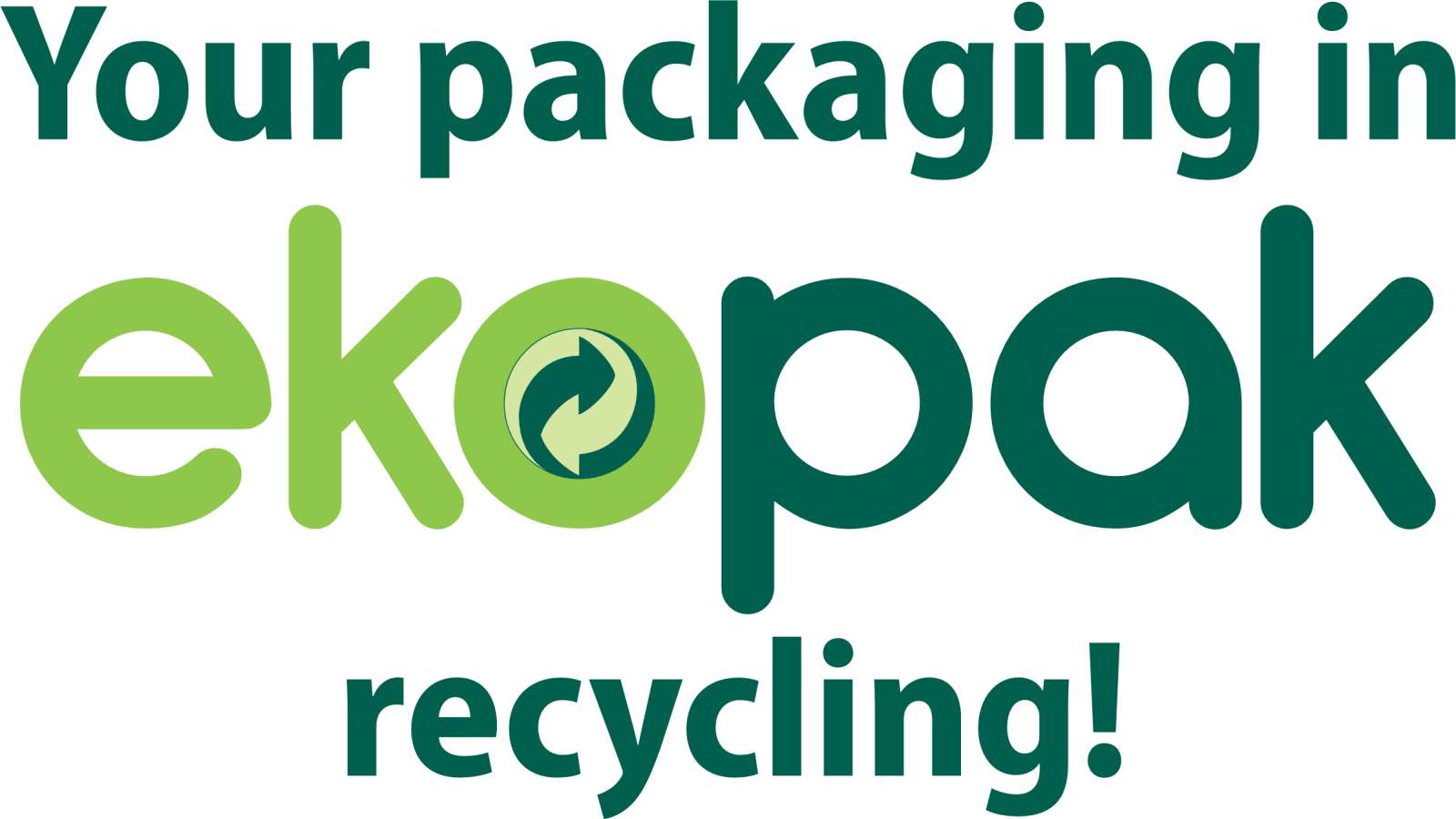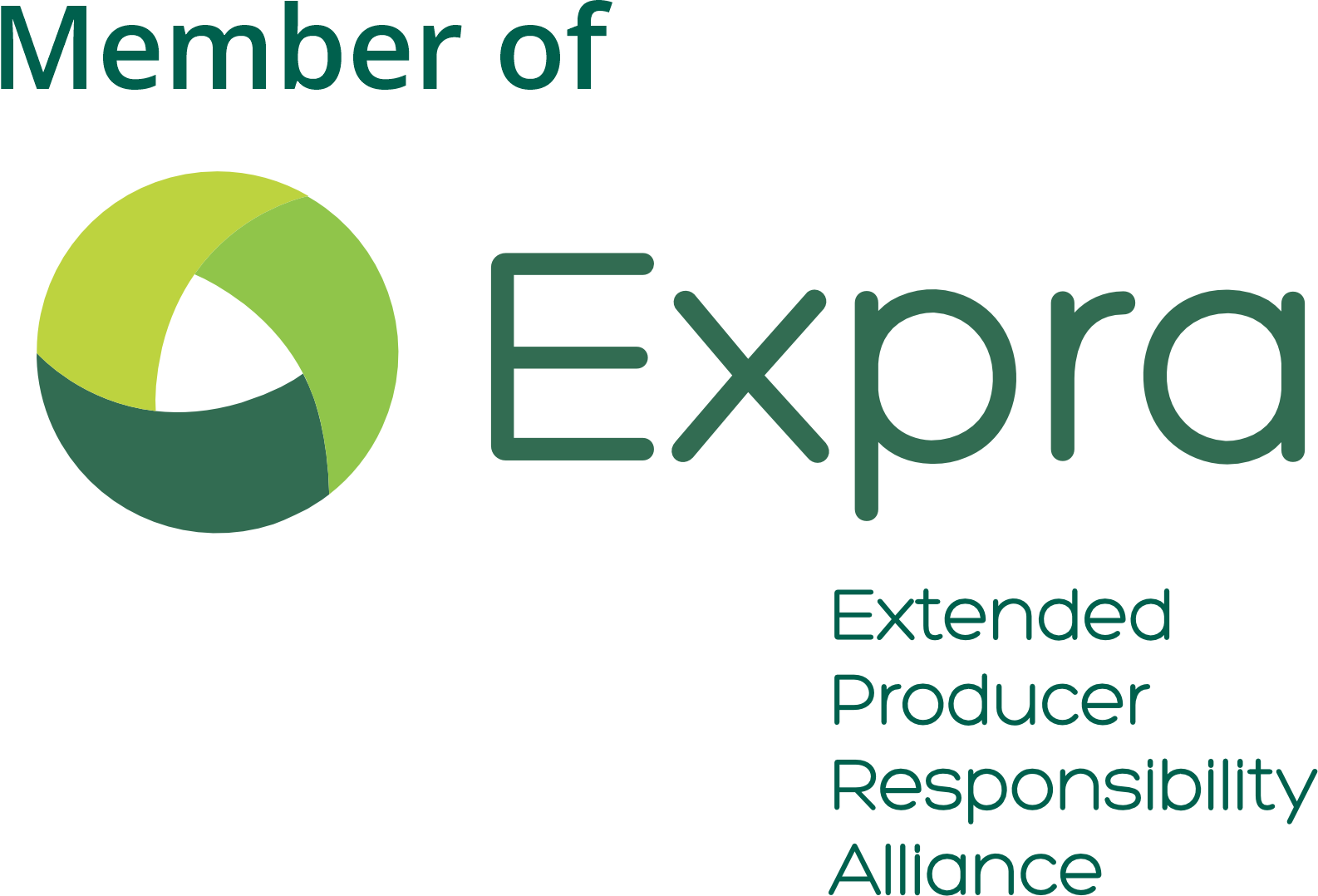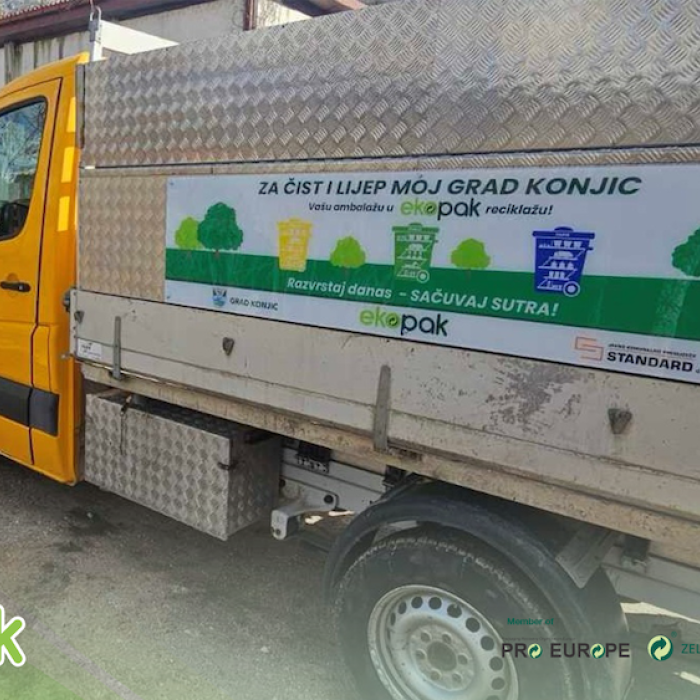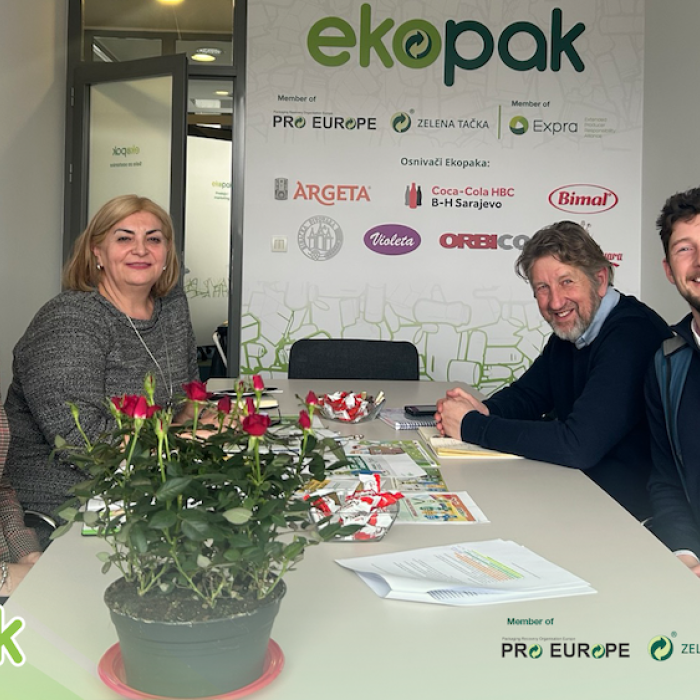Ekopak overfulfilled all yearly aims
The aim for glass is fulfilled with 103%, metal with 105%, paper 103%, plastic 104%, wood 105%, multilayer 116%, and for package material of dangerous matters even 163%.
According to ‘’Book of package material and package material waste managing regulations’’, Ekopak delivered on March 31, 2019 a ‘’Report on managing package material and package material waste for the year 2019’’, to a Federal minsitry for enviroment and tourism and a Fond for enviroment protection in Federation of BiH.
Aims for recycling and recovery of package material waste are completely fulfilled. Ekopak took over from its clients, which are around 700 producers, importers, fillers, distributors and traders, 33 593 tons of package material for management. 12,197 tons were recycled and recovered, which exceeded the prescribed target of 35%.
Thanks to a corporation with more than 20 public communal companies and private companies that are in business of managing package material waste from all 10 cantons in Federation of BiH, Ekopak delivered to a recycling and reuse over 12 197 tons, that makes for 4% over yearly aim. Also, all specific aims for each package material are overfulfilled: The aim for glass is fulfilled with 103%, metal with 105%, paper 103%, plastic 104%, wood 105%, multilayer 116%, and for package material of dangerous matters even 163%.
‘’Despite bad economic and political situation in our country, and disarrangement on the secundary material market, we manage to overfulfill all challenges and make a step forth every year in establishing an effective and maintainable system for managing package material waste, and all of this on the model of developed world countries. So the year 2018 was very successful for us,’’ said the director of Ekopak Amela Hrbat, and added: ,,For the year 2019 we set clear plans and bigger challenges, and all with an aim of stronger capacity for separate collecting and recycling of package material waste, but also affect on change of public conscious about importance of recycling package material waste.’’








